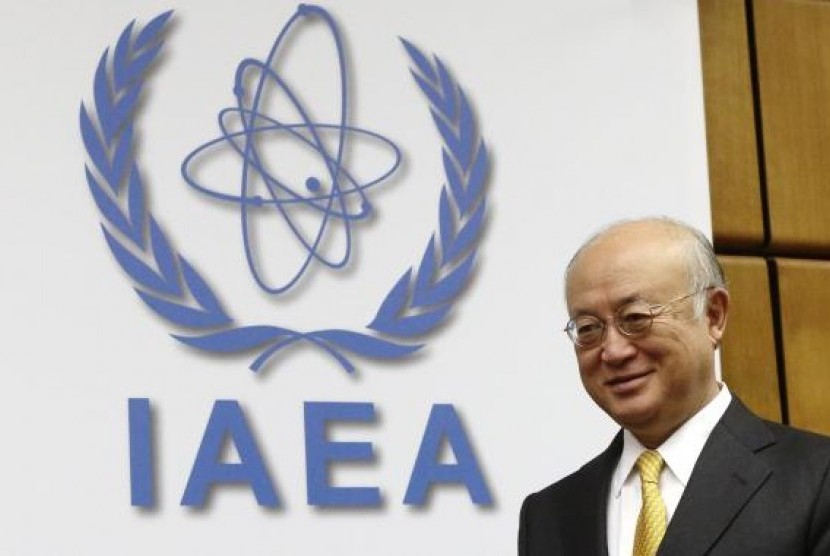REPUBLIKA.CO.ID, VIENNA -- Iran has continued to meet commitments under an interim nuclear agreement with six world powers, a confidential UN agency report showed, though Tehran temporarily halted conversion work that makes higher-grade uranium less suitable for bombs.
The monthly update by the International Atomic Energy Agency (IAEA), seen by Reuters, said Iran was not enriching uranium above a fissile concentration of 5 percent, far below the 90 percent level needed for atomic arms. It also said Iran had not made "any further advances" to its activities at two enrichment facilities and an unfinished heavy water reactor.
Under last year's accord between Iran and the United States, France, Germany, Russia, China and Britain, the Islamic Republic halted its most sensitive nuclear activity and took other steps in exchange for some easing of economic sanctions.
It was negotiated to buy time for talks on a final settlement of a 12-year dispute over Iran's nuclear program, which it says is peaceful but the West fears may be aimed at developing a capability to produce nuclear weapons.
After Iran and the powers last month failed for a second time to meet a deadline for ending the stand-off, they extended the preliminary accord until June 30.
France and Britain said on Thursday that Iran had not demonstrated sufficient flexibility in the nuclear talks. The remarks, at the United Nations, came just after the completion of another inconclusive round of negotiations in Geneva this week.
Western officials say Iran has not compromised on major sticking points, including the size and scope of its future uranium enrichment program and the speed of ending sanctions.
Under the interim deal's extension, Iran would continue to covert higher-grade uranium oxide into reactor fuel - thereby making it harder and more time-consuming to turn it into the fissile core of a bomb. Tehran denies any such aim.
Friday's IAEA report said Iran on Nov. 25 "temporarily stopped the operations for conversion and fuel manufacturing" in preparation for the U.N. agency's inventory checks at the facility that were subsequently carried out Dec. 14-16.
The language implied that Iran was soon expected to resume conversion and one diplomatic source said he saw no problem.
Iran converted 25 kg of uranium oxide enriched to 20 percent fissile concentration under the first extension of the interim agreement, or a quarter of the total stock. Diplomats said this should continue at an average rate of about 5 kg per month.


